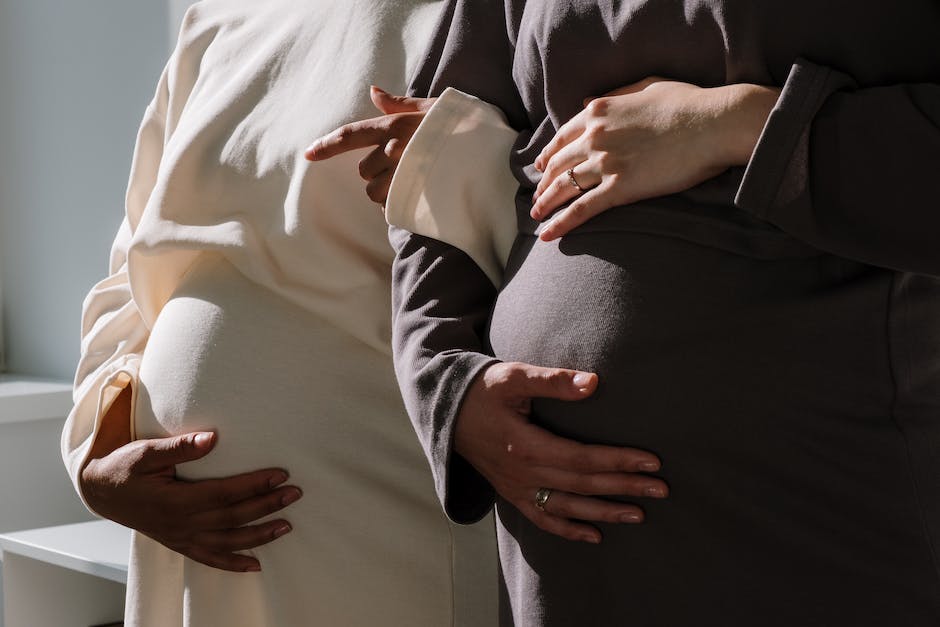The human psyche is a labyrinth of symbols and themes, each carrying profound meanings that transcend our waking lives. Dreams have long been the gateways through which our subconscious communicates, often using potent symbols that can both bewilder and enlighten. One such powerful symbol is that of pregnancy. When we dream of getting pregnant, it’s as if our minds are gestating ideas, feelings, and possibilities, allowing them to take shape in the cryptic language of dreams. The following essay delves into the psychological labyrinth, teasing out the significance behind these enigmatic dreams. We explore not only the reflections within our own psyche but also how the tapestry of culture and society intertwines with our deepest dreaming selves.
Psychological interpretation of pregnancy dreams
Dreams of pregnancy often carry profound psychological symbolism that extends beyond the literal notion of expecting a child. In the lexicon of dream interpretation, they can represent anything from creativity and growth to apprehension about new responsibilities. These dreams are not confined to those who are actively trying to conceive; they can manifest in anyone’s subconscious, regardless of gender or life stage.
Psychologically, dreams about pregnancy may signify the birth of a new idea or project. Just as pregnancy involves nurturing a new life, these dreams can suggest the dreamer is ‘pregnant’ with potential, incubating a fresh concept or preparing to embark on an endeavor that requires careful planning and dedication. This gestation of the mind reflects an internal creative process, much like an artist bringing their vision to fruition or a scholar developing a new theory. The emotional spectrum experienced in these dreams, from joy and anticipation to fear and uncertainty, often mirrors the dreamer’s feelings towards their real-life venture.
Alternatively, such dreams might point to a desire for change or transformation. The subconscious mind often communicates through powerful symbols, and the idea of creating new life could be a metaphor for personal evolution. It’s as though the psyche is beckoning the individual to ‘give birth’ to a new aspect of themselves, perhaps a dormant talent or a previously suppressed part of their personality. Just as pregnancy can be a time of waiting and preparation, dreams of pregnancy may suggest an impending transition, inviting introspection about one’s readiness for the metamorphosis ahead.

Cultural and societal influences on pregnancy dreams
The Cultural Tapestry of Pregnancy Dreams
Dreams of pregnancy often act as canvases upon which cultural and societal norms are vividly painted, revealing rich symbolic significance that transcends individual interpretation. Across different cultures, pregnancy dreams may be steeped in tradition and collective values, offering communal meanings that echo through generations. In some societies, these dreams are seen as potent omens or prophecies, entwined with ancestral wisdom and community expectations. For instance, within certain Eastern cultures, dreaming of pregnancy is commonly associated with forecasts of prosperity or the arrival of good fortune. A single dream narrative, like the pregnancy dream, thus serves as a thread weaving through the social fabric, connecting individual experiences with the collective ethos.
Society’s influence on the interpretation of pregnancy dreams further manifests through the prism of current social dynamics and public discourse. In an era defined by gender roles undergoing profound redefinition, pregnancy dreams can reflect the fluidity of individual identity and societal constructs. As men and women grapple with expectations surrounding parenthood and career paths, dreams of pregnancy may offer a subconscious commentary on these contemporary issues. These dreams can mirror underlying tensions or aspirations shaped by societal debates on gender equality, work-life balance, and the reimagining of traditional family structures. Hence, the dream, while personal in its occurrence, assumes a communal dimension through which prevailing social narratives find subconscious expression.
As we continue to explore the intricate interface between dream psychology and cultural anthropology, it becomes evident that pregnancy dreams serve as a unique crossroads where personal inner life and wider societal patterns converge. They are not mere nocturnal musings, but rather, symptomatic indicators of the zeitgeist, the spirit of our times. Just as an anthropologist keenly observes the rituals and mores of a society to understand its culture, so too can we analyze pregnancy dreams to gain insights into the collective unconscious. Through this lens, we witness the ebb and flow of societal influences shaping the dreamscape, mapping out an ever-evolving tableau of human experience.

As we navigate the terrains of our inner world through our dreams, the theme of pregnancy stands out as a universal symbol with personal nuances. It becomes clear that dreams of pregnancy speak a complex language, intertwining personal narratives, collective myths, and the silent whispers of the unconscious. Whether they signal a burgeoning creativity, the birth of new ideas, or the anxieties of transformation, our dreams of pregnancy are both intimately personal and resonantly universal. They remind us that within each of us is the power to conceive, nurture, and bring forth into the world that which is waiting to be born within our deepest selves.
